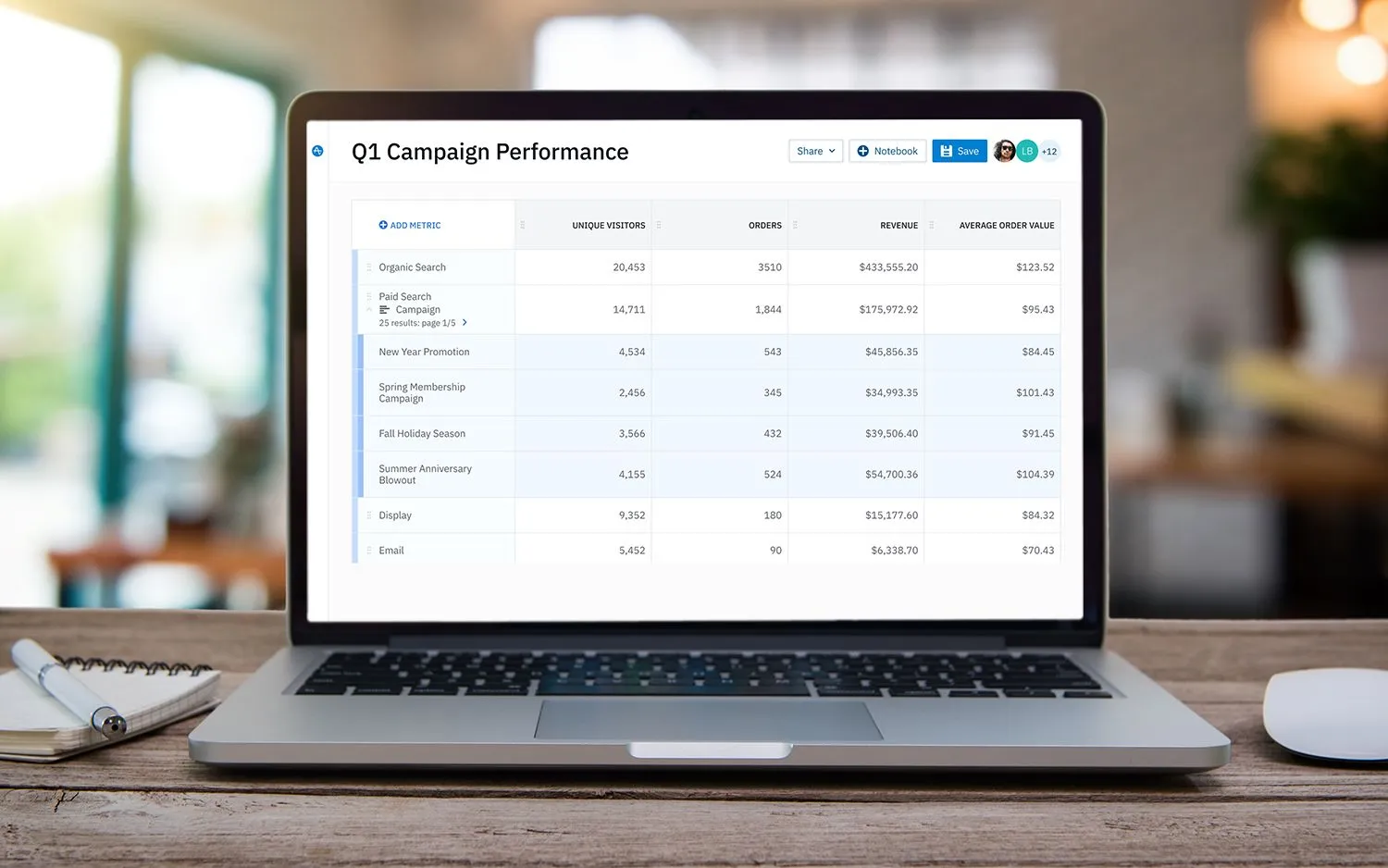In today’s competitive digital landscape, marketing strategies require precision, creativity, and efficiency to succeed. Leveraging the right tools can significantly enhance your campaigns, streamline processes, and maximize ROI. From analytics platforms to content creation tools, the vast range of options available can transform your digital marketing efforts.
This comprehensive guide explores over 100 tools to optimize your digital marketing strategy. These tools are categorized into groups of 10 based on their primary function, making it easier for you to find the perfect fit for your needs. Whether you’re focused on SEO, content marketing, social media, or email campaigns, this article has you covered.

Analytics and Reporting Tools
Analytics and reporting tools provide critical insights that help you understand your audience, measure campaign success, and identify areas for improvement. These tools are the backbone of a data-driven marketing strategy. Below are ten highly effective analytics platforms, each offering unique features to give you a competitive edge. Let’s dive in.
1. Google Analytics
Google Analytics is a powerhouse in digital marketing analytics. It tracks website traffic, user behavior, and conversion rates, providing an in-depth view of how visitors interact with your site. The tool is free and integrates seamlessly with Google Ads, allowing you to monitor campaign performance in real time. With customizable dashboards and reports, Google Analytics is essential for marketers at any level.
2. Adobe Analytics
Adobe Analytics delivers enterprise-grade data insights with unparalleled granularity. It enables you to analyze customer journeys across multiple touchpoints, offering predictive analytics powered by AI. With robust data segmentation and real-time reporting, Adobe Analytics is perfect for businesses needing advanced, scalable solutions for audience understanding.
3. Hotjar
Hotjar focuses on user experience analytics, providing heatmaps, session recordings, and surveys to understand how users interact with your website. It identifies friction points and helps optimize user journeys, making it a favorite among UX designers and digital marketers. Hotjar’s feedback tools also enable you to collect direct input from your audience.
4. Kissmetrics
Kissmetrics specializes in customer behavior analytics, offering tools to track individual users across their journey. It highlights metrics like churn rate, customer lifetime value, and engagement trends. By providing a complete picture of customer interactions, Kissmetrics supports businesses in making data-driven decisions to increase retention and conversions.
5. Mixpanel
Mixpanel excels at event-based analytics, tracking specific actions users take within your app or website. It’s especially popular among SaaS companies and product teams. Mixpanel provides detailed insights into user engagement, funnels, and retention, empowering teams to optimize user experiences and maximize growth.
6. Tableau
Tableau is a leading data visualization platform that transforms complex datasets into clear, actionable insights. It integrates with various data sources, enabling you to create interactive dashboards and reports. Tableau is ideal for organizations looking to communicate data insights effectively across teams.
7. SEMRush Traffic Analytics
SEMRush Traffic Analytics helps marketers analyze competitors’ web traffic to uncover new opportunities. It provides insights into visitor behavior, traffic sources, and audience demographics. This tool is invaluable for benchmarking and competitive analysis.
8. Crazy Egg
Crazy Egg offers visual analytics, including heatmaps, scrollmaps, and confetti reports, to understand how users interact with your website. The tool also includes A/B testing capabilities, enabling you to experiment with design changes to boost performance.
9. Microsoft Clarity
Microsoft Clarity is a free analytics tool offering session recordings, heatmaps, and actionable insights into user behavior. It’s known for its simplicity and ability to highlight problem areas, like excessive scrolling or unexpected click patterns. Clarity is perfect for small businesses and marketers looking for an easy-to-use solution.
10. Looker
Looker, now part of Google Cloud, is a business intelligence tool that offers deep insights into data through customizable dashboards and advanced analytics. Its integration capabilities make it a powerful choice for enterprises aiming to unify data from multiple sources for better decision-making.

SEO Optimization Tools
Search Engine Optimization (SEO) is fundamental to digital marketing success. The right tools can help you optimize your content, improve site rankings, and attract organic traffic. Below are ten indispensable SEO tools, each offering detailed features to take your strategy to the next level.
11. Ahrefs
Ahrefs is one of the most comprehensive SEO tools on the market, widely used for keyword research, backlink analysis, and competitive benchmarking. Its extensive database provides insights into your website’s health, identifying areas for improvement in site structure, content, and link-building strategies. With the Content Explorer feature, you can discover trending topics, ensuring your content remains relevant and optimized for search engines.
12. SEMRush
SEMRush is an all-in-one platform designed to elevate your SEO game. It offers keyword research, competitor analysis, and domain tracking, making it an essential tool for market analysis. Its Site Audit feature identifies technical issues like broken links, slow loading times, and poor mobile performance. SEMRush also provides content optimization recommendations tailored to current ranking algorithms.
13. Moz Pro
Moz Pro is a versatile SEO tool that simplifies complex tasks like rank tracking, on-page optimization, and link building. Known for its user-friendly interface, Moz Pro also offers the MozBar, a browser extension providing instant metrics on any webpage. It’s a favorite among marketers for its actionable insights and robust keyword research capabilities.
14. Google Search Console
Google Search Console is a free, must-have tool for monitoring and maintaining your site’s presence in search results. It provides data on search queries, click-through rates, and indexing issues, ensuring your content aligns with Google’s best practices. Its coverage reports help you identify and resolve technical errors that could affect your rankings.
15. Yoast SEO
Yoast SEO is a plugin specifically designed for WordPress users to optimize on-page content. It analyzes your pages for readability, keyword density, and meta descriptions, providing real-time suggestions. Yoast SEO also supports schema markup, ensuring your content appears as rich snippets in search results for improved visibility.
16. Screaming Frog
Screaming Frog is a website crawler that audits technical SEO issues, such as broken links, duplicate content, and missing metadata. Its robust reporting capabilities make it an essential tool for large-scale websites requiring frequent audits. Screaming Frog integrates with Google Analytics, providing deeper insights into user behavior alongside technical performance.
17. Ubersuggest
Created by Neil Patel, Ubersuggest is a beginner-friendly SEO tool offering keyword suggestions, content ideas, and competitive analysis. It’s perfect for marketers looking to identify trending topics and long-tail keywords. The tool also includes a domain overview feature, offering a snapshot of your site’s performance against competitors.
18. AnswerThePublic
AnswerThePublic focuses on identifying user questions and search intent, providing a unique angle for keyword research. It visualizes data into clusters of related queries, enabling you to create highly relevant content that addresses your audience’s needs. This tool is particularly useful for content marketers and bloggers.
19. KWFinder
KWFinder specializes in long-tail keyword research, offering metrics like search volume, difficulty, and trends. It’s ideal for targeting niche audiences with less competitive keywords. KWFinder also integrates with Mangools tools, offering a complete suite for SEO optimization, including link tracking and SERP analysis.
20. Majestic
Majestic is renowned for its backlink analysis capabilities, offering metrics like Trust Flow and Citation Flow to evaluate link quality. It provides a detailed view of your link-building efforts, helping you identify high-value backlinks and eliminate harmful ones. With its extensive historical data, Majestic is an invaluable tool for long-term SEO strategies.

Content Creation and Optimization Tools
Compelling content is at the heart of any successful digital marketing campaign. These tools help you craft engaging articles, graphics, and videos that captivate your audience while aligning with your marketing objectives. Below are ten content creation tools you need to know about.
21. Canva
Canva is a user-friendly graphic design platform that allows marketers to create stunning visuals without prior design experience. From social media posts to infographics, Canva provides a wide array of templates, fonts, and elements. Its drag-and-drop interface makes it accessible for beginners, while its advanced features cater to professional designers.
22. Grammarly
Grammarly ensures your written content is polished, error-free, and impactful. This AI-powered tool checks grammar, punctuation, and tone, offering suggestions to improve clarity and engagement. The premium version includes advanced features like style improvement and plagiarism detection, making it a must-have for writers and editors.
23. Adobe Creative Cloud
Adobe Creative Cloud is a suite of professional-grade tools for graphic design, video editing, and more. Applications like Photoshop, Illustrator, and Premiere Pro provide unmatched versatility for creating high-quality visuals and videos. While it requires a steeper learning curve, Adobe’s tools are the gold standard for creative professionals.
24. BuzzSumo
BuzzSumo helps marketers discover trending content and analyze its performance. By identifying popular topics and influencers in your niche, you can craft content that resonates with your audience. BuzzSumo’s insights into social shares and backlinks also help refine your content strategy for maximum impact.
25. Hemingway Editor
The Hemingway Editor simplifies complex writing, ensuring your content is readable and concise. It highlights hard-to-read sentences, passive voice, and unnecessary adverbs, encouraging a more direct writing style. This tool is ideal for content creators aiming to produce clear, engaging copy.
26. Vidyard
Vidyard is a video creation and hosting platform designed for marketers. It offers tools to record, edit, and share videos across various channels. Vidyard also provides analytics to track video performance, helping you optimize for engagement and conversions.
27.Giphy
Giphy is a popular platform for creating and discovering GIFs, an engaging medium for visual storytelling. Marketers use Giphy to add personality to social media posts and emails, making content more relatable and shareable. Its GIF creation tools are simple, enabling anyone to produce custom animations.
28. Jasper (formerly Jarvis)
Jasper is an AI-powered writing assistant that generates high-quality content based on your prompts. It’s perfect for blog posts, social media updates, and ad copy. Jasper saves time and ensures consistency in tone and style, making it a valuable resource for busy marketers.
29. Lumen5
Lumen5 automates video creation, turning written content into dynamic video presentations. It offers a library of templates, stock images, and animations, enabling marketers to produce professional videos without extensive skills or resources. Lumen5 is particularly useful for repurposing blog posts into video content.
30. Piktochart
Piktochart simplifies the creation of infographics, presentations, and reports. It offers customizable templates and a drag-and-drop interface, making it accessible to marketers of all skill levels. Piktochart is an excellent tool for transforming data into visually appealing content.

Social Media Management Tools
Social media platforms are essential channels for building brand awareness, engaging audiences, and driving conversions. Effective management of these platforms requires tools that help you schedule posts, analyze performance, and interact with followers efficiently. Here are ten top tools to streamline your social media efforts.
31. Hootsuite
Hootsuite is one of the most popular social media management platforms, allowing you to schedule, publish, and monitor posts across multiple networks, including Facebook, Twitter, Instagram, and LinkedIn. It offers analytics to track engagement metrics and team collaboration features for larger organizations. Hootsuite’s real-time insights enable marketers to refine their strategies based on performance trends and audience preferences.
32. Buffer
Buffer focuses on simplifying social media scheduling and publishing. Its clean interface makes it easy to queue posts for various platforms, while its analytics provide actionable insights on the best posting times and content types. Buffer also includes engagement tools for responding to comments and messages directly within the platform, making it a go-to choice for small teams and solo marketers.
33. Sprout Social
Sprout Social combines social media management with advanced analytics and customer relationship management (CRM) features. It enables you to track brand mentions, analyze audience sentiment, and create detailed performance reports. With its user-friendly dashboard, Sprout Social is a favorite among brands looking to enhance engagement and maintain consistent communication with followers.
34. Later
Later specializes in Instagram marketing but also supports other platforms like TikTok, Pinterest, and Facebook. Its visual content calendar allows marketers to plan posts using a drag-and-drop interface. Later’s hashtag suggestions and analytics tools are especially valuable for growing Instagram engagement. Additionally, the platform’s Linkin.bio feature helps drive traffic from Instagram posts to your website or e-commerce store.
35. SocialBee
SocialBee focuses on content categorization, enabling you to organize posts by type (e.g., promotions, evergreen content) and schedule them accordingly. The platform’s built-in content recycling ensures your evergreen posts stay active and relevant. SocialBee also offers integrations with major social media platforms and collaboration tools for teams, making it an excellent choice for agencies and freelancers.
36. Agorapulse
Agorapulse is an all-in-one social media management tool that excels in post scheduling, audience engagement, and social listening. Its unified inbox consolidates messages, comments, and reviews from all platforms, ensuring you never miss an opportunity to connect with your audience. Agorapulse also provides robust analytics and custom reporting options to measure campaign success.
37. CoSchedule
CoSchedule combines social media management with a content marketing calendar, helping marketers plan and execute campaigns seamlessly. Its ReQueue feature automates the posting of your best-performing content, maximizing engagement. CoSchedule integrates with platforms like WordPress, allowing you to manage blog posts and social media updates in one place.
38. Zoho Social
Zoho Social is part of the broader Zoho suite of business tools and is designed for social media scheduling, monitoring, and analytics. It supports team collaboration with features like approval workflows and role-based permissions. Zoho Social’s listening tools help you track brand mentions and industry trends, ensuring your content remains relevant and timely.
39. TweetDeck
TweetDeck is a free Twitter management tool that allows you to monitor multiple accounts, schedule tweets, and track mentions or hashtags in real time. Its column-based layout provides a comprehensive view of your activity, making it easy to engage with followers and join trending conversations. TweetDeck is perfect for businesses heavily reliant on Twitter for marketing.
40. Planoly
Planoly is an intuitive visual planner for Instagram and Pinterest. It enables you to schedule posts, stories, and reels, offering a clear view of how your content will appear on your feed. Planoly’s drag-and-drop interface is user-friendly, while its analytics tools help refine your Instagram marketing strategy. The platform also supports e-commerce integrations to drive sales directly from your posts.

Email Marketing Tools
Email marketing remains one of the most effective channels for nurturing leads and driving conversions. The tools below offer features to create personalized campaigns, automate workflows, and track performance metrics, ensuring your email marketing strategy delivers results.
41. Mailchimp
Mailchimp is a powerhouse for email marketing, offering tools for creating, sending, and analyzing campaigns. Its drag-and-drop email builder makes it easy to craft professional-looking emails without coding skills. Mailchimp also includes automation features for welcome emails, abandoned cart reminders, and more. With its extensive analytics, you can track open rates, click-through rates, and ROI.
42. Constant Contact
Constant Contact is known for its ease of use and comprehensive features, including customizable email templates, contact segmentation, and real-time tracking. It also offers tools for event marketing and surveys, making it a versatile solution for small to medium-sized businesses looking to build stronger customer relationships.
43. HubSpot Email Marketing
Part of HubSpot’s marketing suite, this tool provides advanced email marketing features like personalized content, A/B testing, and detailed performance reports. It integrates seamlessly with HubSpot’s CRM, enabling you to create targeted campaigns based on customer behavior. HubSpot’s automation workflows streamline lead nurturing, ensuring maximum efficiency.
44. AWeber
AWeber is designed for small businesses and entrepreneurs, offering a simple interface for creating and managing email campaigns. It includes pre-built templates, automation options, and integrations with e-commerce platforms like Shopify. AWeber’s list management features ensure your campaigns are tailored to the right audience segments.
45. GetResponse
GetResponse is an all-in-one marketing platform that includes email marketing, landing pages, and automation. It offers advanced features like webinar hosting and conversion funnels, making it ideal for businesses with diverse marketing needs. GetResponse’s intuitive interface and robust analytics make it a popular choice for marketers of all experience levels.
46. ActiveCampaign
ActiveCampaign excels in email marketing automation, offering tools for creating detailed workflows based on user behavior. Its predictive sending feature ensures your emails reach recipients at the optimal time. ActiveCampaign’s CRM integration allows you to manage customer interactions and track the entire buyer’s journey in one platform.
47. ConvertKit
ConvertKit is a favorite among content creators and bloggers, offering features tailored to building and nurturing audiences. It includes visual automation workflows, customizable email templates, and integrations with platforms like WordPress. ConvertKit’s subscriber tagging system enables highly targeted campaigns.
48. Drip
Drip is designed for e-commerce businesses, offering advanced segmentation and automation features to drive sales. Its behavior-based tracking helps you create personalized campaigns that resonate with your audience. Drip’s detailed analytics provide insights into campaign performance, ensuring your efforts lead to measurable results.
49. Campaign Monitor
Campaign Monitor focuses on creating visually stunning email campaigns with its customizable templates and drag-and-drop builder. It also includes advanced segmentation and personalization options, ensuring your messages are relevant to each recipient. Campaign Monitor’s analytics tools provide a clear view of engagement metrics.
50. Klaviyo
Klaviyo is tailored for e-commerce marketers, offering powerful automation and integration capabilities. It uses customer data to create highly targeted email campaigns, including product recommendations and abandoned cart reminders. Klaviyo’s detailed analytics help you track revenue generated from your campaigns, ensuring a clear ROI.

Advertising Platforms and PPC Management Tools
Paid advertising plays a pivotal role in a comprehensive digital marketing strategy, enabling businesses to reach specific audiences and achieve measurable goals. These tools assist with creating, managing, and optimizing pay-per-click (PPC) campaigns and other forms of paid media. Below are ten must-have advertising platforms and tools to boost your ad campaigns.
51. Google Ads
Google Ads is the industry standard for PPC campaigns, offering unparalleled reach across the Google Search Network, Display Network, and YouTube. Its keyword targeting capabilities, combined with features like ad extensions and automated bidding, make it a powerful tool for businesses of all sizes. Marketers can use detailed analytics to track performance metrics such as cost-per-click (CPC), quality scores, and conversion rates, ensuring campaigns deliver maximum ROI.
52. Facebook Ads Manager
Facebook Ads Manager is essential for running paid campaigns on Facebook and Instagram. It allows you to create highly targeted ads based on user demographics, interests, behaviors, and even lookalike audiences. The platform provides tools for A/B testing, campaign budgeting, and performance tracking. With its focus on social engagement, Facebook Ads Manager is ideal for building brand awareness and driving conversions.
53. Microsoft Advertising
Formerly known as Bing Ads, Microsoft Advertising provides access to the Bing search engine and its partner networks. It’s particularly valuable for reaching niche audiences and tends to have lower CPCs than Google Ads. The platform supports detailed targeting options and integrates seamlessly with Google Ads campaigns for those looking to expand their PPC reach.
54. LinkedIn Ads
LinkedIn Ads is the go-to platform for B2B marketers, offering advanced targeting options based on job titles, industries, company sizes, and more. Its ad formats include sponsored content, text ads, and InMail campaigns, all designed to reach professional audiences effectively. LinkedIn Ads also provides analytics to track lead generation and brand awareness metrics.
55. AdRoll
AdRoll specializes in retargeting and display advertising, enabling businesses to re-engage website visitors with personalized ads across various platforms, including social media and the web. Its AI-driven tools optimize ad delivery and budget allocation, while its cross-channel reporting ensures transparency in campaign performance.
56. Amazon Advertising
Amazon Advertising is perfect for e-commerce brands looking to showcase their products to millions of potential buyers. The platform offers sponsored products, brands, and display ads that appear in search results and on product pages. Detailed insights into shopping behavior and sales attribution make Amazon Advertising indispensable for online retailers.
57. TikTok Ads Manager
TikTok Ads Manager provides access to one of the fastest-growing social media platforms, making it ideal for reaching younger, highly engaged audiences. The platform offers a range of ad formats, including in-feed ads, branded effects, and top-view ads. Its creative tools help marketers produce dynamic, trend-driven content tailored to TikTok’s unique style.
58. Quora Ads
Quora Ads allows businesses to target users based on their interests, questions, and browsing behavior. This platform is particularly effective for niche markets and thought leadership campaigns. Quora’s native ads blend seamlessly with user content, fostering higher engagement and trust.
59. Pinterest Ads
Pinterest Ads is ideal for businesses in industries like fashion, home decor, and DIY projects. The platform enables marketers to promote pins that appear in user feeds and search results. Pinterest’s audience insights and targeting tools make it easy to reach users who are actively seeking inspiration and ideas.
60. Taboola
Taboola is a native advertising platform that places your content on premium publisher websites as recommended articles or videos. Its discovery-focused approach is excellent for driving traffic, increasing brand visibility, and generating leads. Taboola’s AI-powered targeting ensures your ads reach the right audience at the right time.

Customer Relationship Management (CRM) Tools
Customer Relationship Management (CRM) tools help businesses maintain strong relationships with their customers by organizing interactions, tracking sales, and automating workflows. Below are ten essential CRM platforms designed to enhance your customer management processes.
61. Salesforce
Salesforce is the leading CRM platform, offering comprehensive tools for managing customer relationships, sales pipelines, and marketing campaigns. Its customization options and integrations with thousands of apps make it a favorite for businesses of all sizes. Salesforce’s AI-powered analytics, known as Einstein, helps teams predict customer behavior and identify growth opportunities.
62. HubSpot CRM
HubSpot CRM is a free and user-friendly tool that integrates seamlessly with HubSpot’s marketing and sales suite. It includes features like contact management, email tracking, and deal pipelines. HubSpot CRM is particularly popular among small businesses for its ease of use and ability to scale alongside business growth.
63. Zoho CRM
Zoho CRM is an affordable yet powerful solution for managing leads, contacts, and customer interactions. It includes AI-powered sales predictions, workflow automation, and customizable dashboards. Zoho CRM integrates with other Zoho tools, creating a unified ecosystem for marketing, sales, and support.
64. Pipedrive
Pipedrive is a sales-focused CRM designed to help teams manage pipelines and close deals more efficiently. Its visual pipeline interface provides a clear overview of each stage in the sales process. Automation features and integrations with tools like Slack and Trello make Pipedrive an excellent choice for growing businesses.
65. Microsoft Dynamics 365
Microsoft Dynamics 365 combines CRM and ERP capabilities, offering tools for sales, marketing, and customer service. It’s ideal for enterprise-level businesses looking to integrate customer data across departments. Dynamics 365’s AI-driven insights and integration with Microsoft Office make it a robust choice for large organizations.
66. Freshsales
Freshsales is a CRM solution tailored for small to medium-sized businesses, offering features like lead scoring, email tracking, and workflow automation. It includes AI-powered insights to help sales teams prioritize leads and optimize their outreach efforts. Freshsales integrates seamlessly with other Freshworks tools, creating a cohesive business solution.
67. Monday Sales CRM
Monday Sales CRM, part of the Monday.com platform, is a flexible tool for managing customer interactions and sales processes. Its customizable workflows and visual boards make it easy to adapt to your team’s specific needs. Monday Sales CRM is ideal for teams looking for a visually intuitive and collaborative platform.
68. Nimble
Nimble focuses on simplifying relationship management by consolidating contact information, social media activity, and email interactions in one place. Its browser extension allows users to access customer data directly from their inbox or social media profiles. Nimble’s simplicity and affordability make it a popular choice for small teams.
69. Copper
Copper is a CRM designed specifically for Google Workspace users. It integrates seamlessly with Gmail, Calendar, and Drive, allowing teams to manage customer interactions directly from their inbox. Copper’s automation features streamline repetitive tasks, enabling sales teams to focus on closing deals.
70. SugarCRM
SugarCRM offers advanced customization and automation features for managing customer relationships. It includes tools for lead tracking, campaign management, and customer service. SugarCRM’s flexibility makes it a favorite for businesses with unique requirements or complex workflows.

Marketing Automation Tools
Marketing automation tools streamline repetitive tasks, enabling marketers to focus on strategy and creative work. These platforms help with lead nurturing, email workflows, campaign management, and analytics, making them essential for scaling your marketing efforts efficiently. Below are ten top marketing automation tools to supercharge your strategy.
71. Marketo Engage
Marketo Engage, part of Adobe’s suite, is a robust marketing automation platform tailored for B2B and B2C businesses. It offers advanced features like lead scoring, account-based marketing (ABM), and multi-channel engagement. Marketo’s AI-driven insights help marketers optimize campaigns by analyzing customer behaviors. Its deep integration capabilities make it ideal for enterprises with complex marketing ecosystems.
72. HubSpot Marketing Hub
HubSpot’s Marketing Hub is a comprehensive platform that combines email marketing, lead generation, and workflow automation. It’s known for its user-friendly interface and seamless integration with HubSpot CRM. The tool allows marketers to create detailed customer journeys, ensuring personalized experiences. Advanced analytics help track the success of campaigns across all touchpoints.
73. ActiveCampaign
ActiveCampaign is a versatile tool that blends email marketing, automation, and CRM functionality. It excels in creating intricate automation workflows triggered by user behaviour, such as abandoned cart reminders or follow-up emails. ActiveCampaign’s segmentation and personalization features ensure highly targeted communication that drives engagement and conversions.
74. Pardot
Pardot, a Salesforce product, is designed for B2B marketers who need robust lead generation and nurturing capabilities. It offers features like email automation, landing page creation, and ROI reporting. Its integration with Salesforce CRM enables seamless data sharing, helping sales and marketing teams align their efforts for better results.
75. Drip
Drip is specifically tailored for e-commerce businesses, providing tools to create personalized campaigns that drive sales. Its automation workflows are designed to re-engage shoppers, such as by sending cart abandonment emails or product recommendations. Drip’s analytics provide detailed insights into customer behavior, helping marketers refine their strategies.
76. Keap (formerly Infusionsoft)
Keap combines marketing automation, CRM, and payment processing into one platform. It’s ideal for small businesses looking to automate lead capture, email marketing, and follow-ups. Keap’s customizable workflows and templates make it easy to get started, while its robust reporting tools help track performance and ROI.
77. Autopilot
Autopilot stands out with its intuitive, visual approach to marketing automation. Its drag-and-drop interface allows marketers to map out customer journeys with ease. Autopilot supports email, SMS, and in-app messaging, making it a multi-channel solution for engaging leads and customers. Integrations with tools like Salesforce and Slack enhance its functionality.
78. Sendinblue
Sendinblue is an all-in-one marketing platform that includes email marketing, SMS campaigns, and automation. Its workflow builder makes it simple to set up personalized customer journeys, while its segmentation tools ensure messages reach the right audience. Sendinblue’s pay-as-you-go pricing model is ideal for businesses with limited budgets.
79. Mailchimp
While Mailchimp is primarily known for email marketing, it also offers powerful automation features. Marketers can create workflows triggered by actions like website visits or email opens, ensuring timely and relevant communication. Mailchimp’s audience insights and predictive analytics help businesses tailor their campaigns for maximum impact.
80. Ontraport
Ontraport is a robust platform that combines marketing automation with CRM and business management tools. It’s particularly popular among service-based businesses and coaches. Ontraport’s automation capabilities allow for personalized customer journeys, while its reporting tools provide insights into campaign performance and customer lifetime value.

Lead Generation Tools
Lead generation tools help businesses attract, capture, and nurture potential customers. These tools play a vital role in building your sales pipeline and driving growth. Here are ten top lead generation platforms designed to fuel your marketing efforts.
81. OptinMonster
OptinMonster is a powerful tool for capturing leads through customizable pop-ups, slide-ins, and forms. It allows you to target visitors based on behaviour, such as exit intent or time spent on a page. Its A/B testing feature helps optimize conversion rates, making it a favourite among marketers looking to grow their email lists.
82. LinkedIn Sales Navigator
LinkedIn Sales Navigator is designed for B2B lead generation, offering advanced search filters to identify and connect with decision-makers. Its insights into profile activity and shared connections enable personalized outreach. The tool integrates with CRM platforms, streamlining lead management for sales teams.
83. Leadpages
Leadpages simplifies the creation of high-converting landing pages, pop-ups, and alert bars. Its drag-and-drop editor and templates make it accessible for non-designers. With built-in analytics and A/B testing, Leadpages ensures your lead capture efforts are optimized for success.
84. Unbounce
Unbounce is a leading landing page builder that helps marketers create pages designed to convert. Its AI-powered Smart Traffic feature analyzes visitor behavior and automatically routes traffic to the most relevant landing page variation. Unbounce also offers integrations with email marketing tools and CRMs, making it a seamless addition to any tech stack.
85. Hunter.io
Hunter.io is an email finder and verification tool that helps businesses connect with key contacts. It allows you to find professional email addresses associated with specific domains, making it easier to reach decision-makers. Hunter.io’s bulk email search feature is especially useful for scaling outreach campaigns.
86. Snov.io
Snov.io is an all-in-one lead generation platform offering tools for email finding, verification, and outreach. It also includes CRM capabilities, making it easy to manage leads and track their progress through the sales funnel. Snov.io’s automation features save time while ensuring personalized communication.
87. Hello Bar
Hello Bar specializes in lead capture through attention-grabbing banners and pop-ups. Its customization options allow you to create calls-to-action tailored to your audience. Hello Bar integrates with popular email marketing platforms, ensuring seamless lead nurturing.
88. Typeform
Typeform transforms forms and surveys into engaging lead capture tools. Its user-friendly interface and visually appealing designs encourage higher completion rates. Typeform is ideal for collecting detailed information about your audience, such as preferences and pain points, which can inform your marketing strategies.
89. ZoomInfo
ZoomInfo provides detailed contact and company information, making it a valuable resource for B2B lead generation. Its database includes insights into company size, industry, and decision-makers, enabling precise targeting. ZoomInfo’s integrations with CRMs ensure smooth lead management.
90. Leadfeeder
Leadfeeder identifies companies visiting your website, even if they don’t fill out a form. By tracking IP addresses and integrating with CRMs, it helps sales teams prioritize leads based on their behaviour and engagement. Leadfeeder is a powerful tool for uncovering hidden opportunities in your website traffic.

Video Marketing Tools
Video marketing has become one of the most effective ways to engage audiences, build trust, and drive conversions. These tools help you create, edit, and distribute high-quality video content across platforms, ensuring your marketing strategy captures attention and delivers results. Below are ten top video marketing tools that can take your campaigns to the next level.
91. YouTube Studio
YouTube Studio is an essential tool for managing and optimizing your YouTube channel. It provides in-depth analytics on video performance, including views, watch time, and audience demographics. With built-in editing tools, you can trim videos, add captions, and enhance visuals directly on the platform. YouTube Studio’s insights into audience behavior and traffic sources allow you to refine your content strategy for maximum reach.
92. Adobe Premiere Pro
Adobe Premiere Pro is a professional-grade video editing software that offers unparalleled versatility and creative control. It supports advanced features like multi-cam editing, motion graphics, and color grading, making it ideal for creating polished, cinematic videos. Premiere Pro integrates seamlessly with Adobe Creative Cloud, enabling teams to collaborate efficiently on video projects.
93. Final Cut Pro X
Final Cut Pro X is a favorite among Mac users for its powerful editing features and intuitive interface. It offers advanced tools for 360-degree video editing, HDR support, and high-performance rendering. With its Magnetic Timeline and customizable templates, Final Cut Pro X simplifies complex editing tasks, making it accessible for both professionals and aspiring creators.
94. Camtasia
Camtasia is an all-in-one screen recording and video editing tool, perfect for creating tutorials, product demos, and explainer videos. Its drag-and-drop editor allows users to add transitions, annotations, and effects easily. Camtasia also includes pre-made assets like intros and outros, helping marketers produce professional-looking videos quickly.
95. Animoto
Animoto simplifies video creation with its drag-and-drop interface and pre-designed templates. It’s ideal for creating marketing videos, social media content, and promotional clips. Animoto offers a library of stock footage, music, and animations, enabling marketers to craft engaging videos without requiring advanced editing skills.
96. Wistia
Wistia is a video hosting platform designed specifically for businesses. It offers advanced analytics, including heatmaps and engagement metrics, to track viewer behavior. Wistia’s customizable video players and lead capture forms make it a powerful tool for driving conversions directly from video content.
97. Vidyard
Vidyard is a video creation, hosting, and analytics platform tailored for marketers and sales teams. Its personalized video tools allow businesses to create unique, one-on-one messages for prospects, enhancing customer engagement. Vidyard also integrates with CRMs like Salesforce, enabling seamless tracking of video-driven leads.
98. Loom
Loom focuses on quick and easy video recording, making it perfect for creating tutorials, team updates, or personalized messages. Its browser-based platform eliminates the need for complex setups, allowing users to record their screens, webcams, or both simultaneously. Loom’s analytics provide insights into how viewers interact with your videos.
99. Vimeo
Vimeo is a premium video hosting platform offering advanced privacy controls, high-quality streaming, and robust collaboration tools. It’s ideal for brands looking to showcase their content in a professional environment. Vimeo’s analytics dashboard provides detailed metrics, while its video editing features enable on-the-go adjustments.
100. Descript
Descript is a unique tool that combines video and audio editing with transcription. Its standout feature is the ability to edit videos by editing their transcriptions, making it incredibly intuitive. Descript also includes screen recording and collaborative tools, making it perfect for teams producing educational or marketing content.

Content Distribution Tools
Creating high-quality content is only half the battle; distributing it effectively ensures your message reaches the right audience. These tools help you amplify your content across channels, track performance, and optimize distribution strategies for maximum impact.
101. Buffer
Buffer, while widely recognized as a social media management tool, excels at content distribution. It enables you to schedule and publish posts across multiple platforms, ensuring consistent messaging. Buffer’s analytics provide insights into the best times to post, helping marketers maximize engagement and reach.
102. Hootsuite
Hootsuite’s content calendar feature allows marketers to plan and distribute content seamlessly across platforms like Facebook, Instagram, and LinkedIn. Its bulk scheduling feature is particularly useful for large campaigns. With built-in analytics, Hootsuite helps track the performance of distributed content and refine strategies in real time.
103. Zapier
Zapier connects apps and automates workflows, streamlining content distribution. For example, you can use Zapier to automatically post new blog articles to social media or add new leads from landing pages into your email marketing platform. Its integrations with thousands of apps make it a powerful tool for simplifying repetitive tasks.
104. Outbrain
Outbrain is a content discovery platform that places your content on premium publisher websites, increasing visibility and traffic. Its AI-powered recommendations target users based on their interests, ensuring your content reaches a relevant audience. Outbrain’s detailed analytics help you measure the effectiveness of your campaigns.
105. Taboola
Similar to Outbrain, Taboola specializes in native advertising, promoting your content as “recommended reading” on top websites. Its targeting capabilities allow you to reach audiences based on location, interests, and browsing behavior. Taboola’s real-time analytics provide insights into campaign performance and ROI.
106. Medium
Medium is a publishing platform that amplifies content distribution by reaching a community of engaged readers. By republishing blog posts or creating exclusive content for Medium, marketers can increase brand visibility. Medium’s built-in audience engagement metrics help gauge the impact of your articles.
107. Quuu Promote
Quuu Promote is a unique content distribution tool that connects your content with real people who share it across social media. This organic promotion increases reach and credibility. Quuu Promote works particularly well for blog posts, infographics, and articles targeting niche audiences.
108. ClickToTweet
ClickToTweet makes it easy for marketers to create pre-written tweets that users can share with a single click. It’s an effective way to encourage content sharing and increase visibility on Twitter. ClickToTweet also provides analytics to track how often your links are shared.
109. OneSignal
OneSignal is a push notification platform that helps you re-engage website visitors by sending updates about new content. Its segmentation and personalization features ensure notifications are relevant, increasing the likelihood of user engagement. OneSignal is ideal for blogs, e-commerce sites, and publishers looking to boost traffic.
110. LinkedIn Pulse
LinkedIn Pulse is a content publishing platform integrated with LinkedIn. By sharing articles and posts directly with your LinkedIn network, you can reach professionals who are interested in your industry. Pulse articles often generate discussions, enhancing engagement and credibility.
In today’s competitive digital marketing ecosystem, the right tools are more than just a convenience—they’re a necessity. From analytics platforms that provide data-driven insights to video editing software that crafts captivating content, the tools highlighted in this guide offer solutions for every aspect of a successful marketing strategy. Whether you’re a small business owner, an agency professional, or part of a large enterprise, leveraging these tools can streamline your efforts, boost productivity, and drive measurable results.
As you explore these tools, remember that no single platform fits all businesses or objectives. Assess your specific goals, budget, and team needs before investing in a tool or suite. Combine complementary tools to cover all facets of your strategy, from lead generation to post-campaign analysis, ensuring a seamless and efficient workflow.










